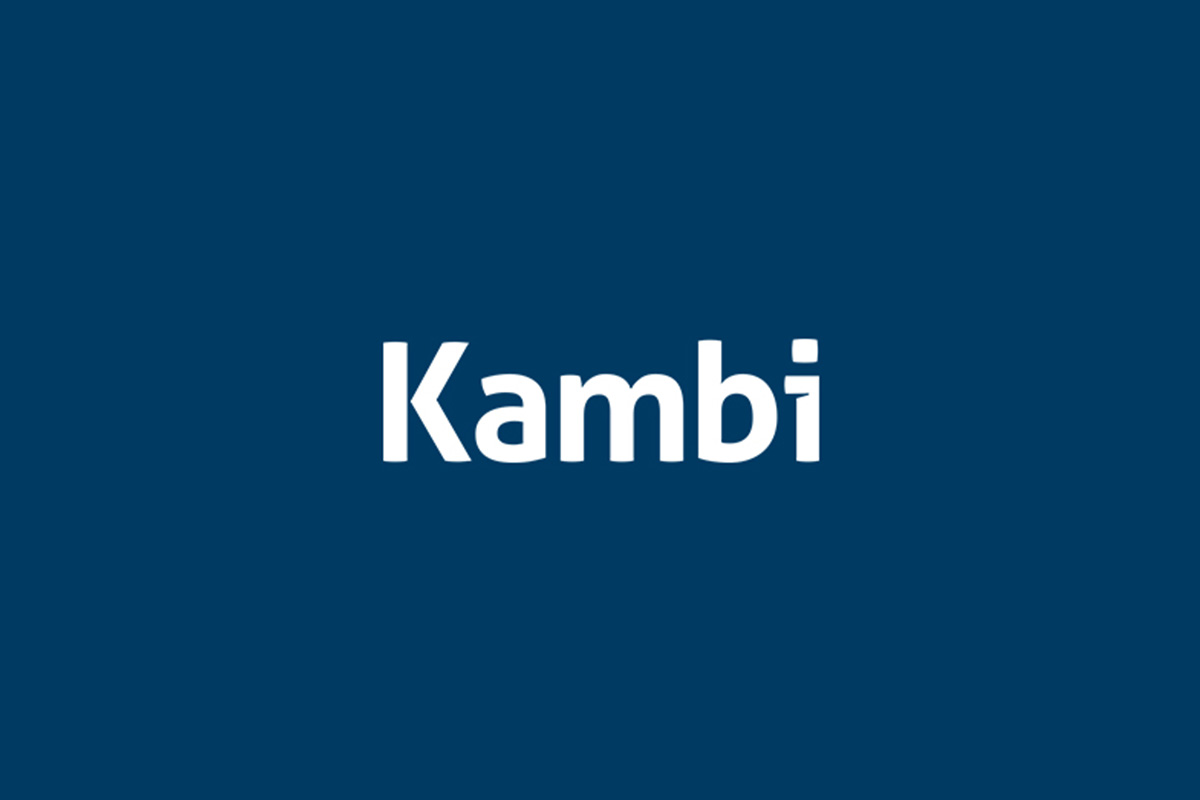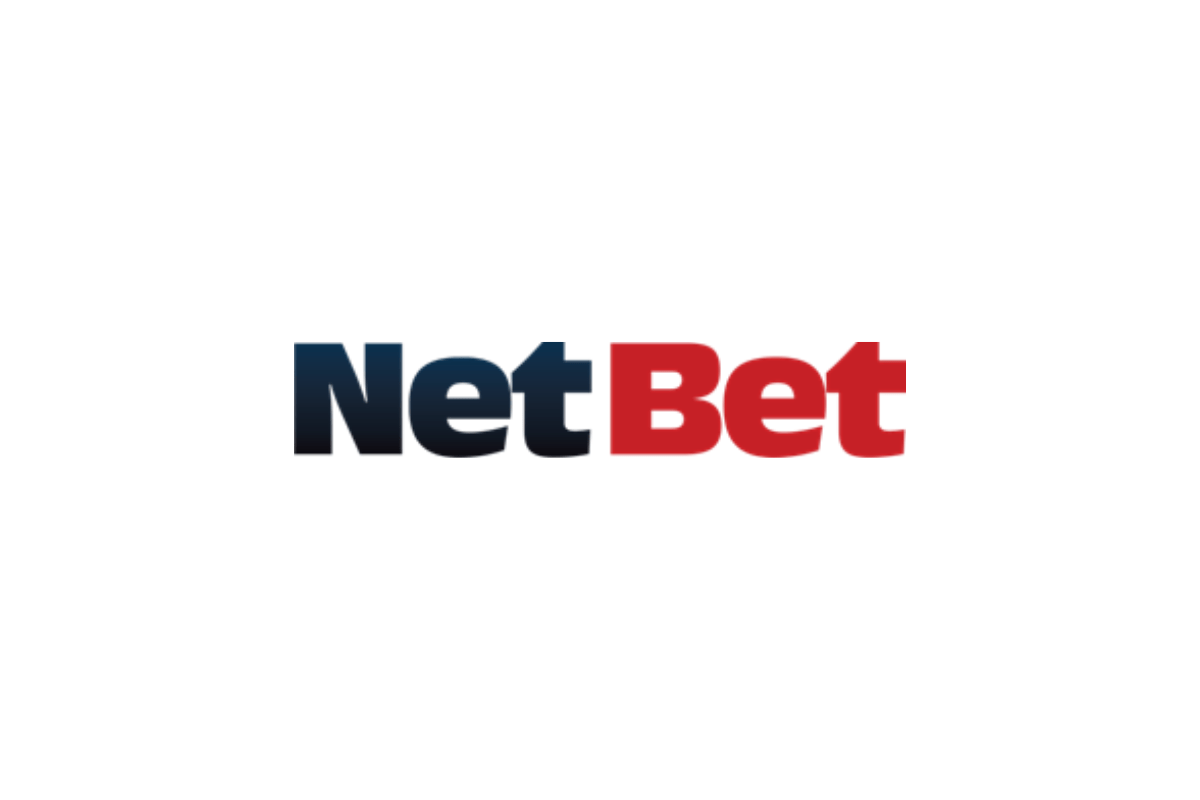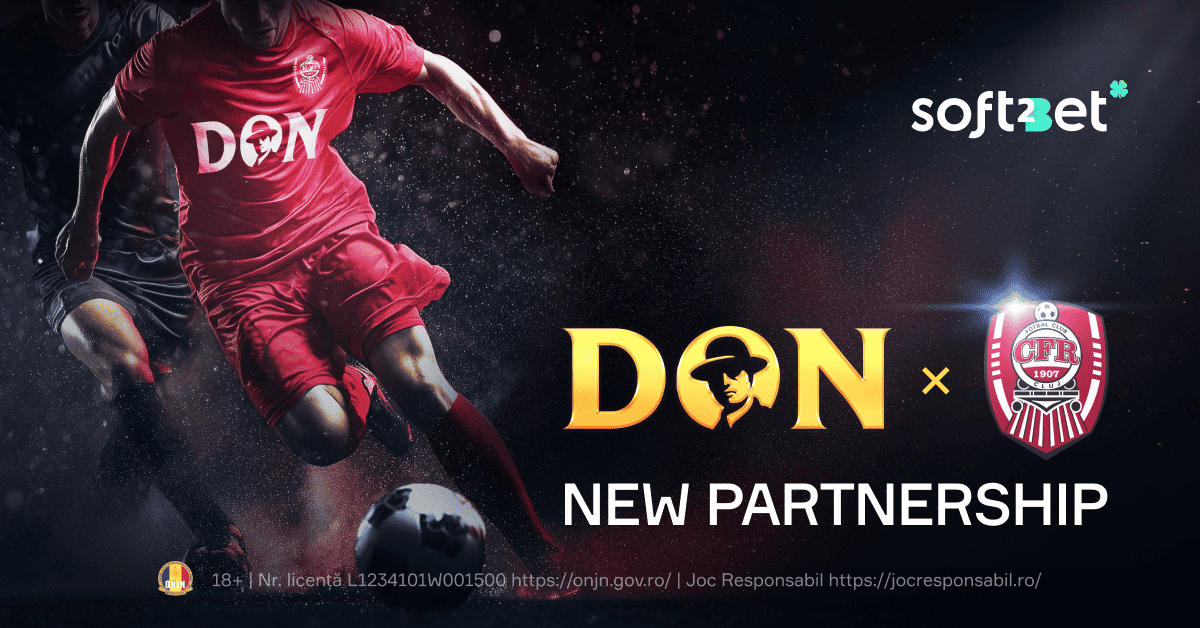Latest News
Notice of Kambi Group Plc Extraordinary General Meeting 2022

In terms of Articles 41 and 42 of the Articles of Association of the Company
NOTICE IS HEREBY GIVEN that that AN EXTRAORDINARY GENERAL MEETING (the “Meeting”) of Kambi Group plc, company number C 49768 (the “Company”) will be held on Thursday 30 June 2022 at 11.00 CEST at Kambi, Hälsingegatan 38, 113 43 Stockholm, Sweden, to consider the following Agenda. The registration of shareholders starts at 10.30 CEST.
Right to attendance and voting
- To be entitled to attend and vote at the Meeting (and for the purpose of the determination by the Company of the number of votes they may cast), shareholders must be entered on the Company’s register of members maintained by Euroclear Sweden AB by Thursday 9 June 2022.
- Shareholders whose shares are registered in the name of a nominee should note that they may be required by their respective nominee/s to temporarily re-register their shares in their own name in the register of members maintained by Euroclear Sweden AB in order to be entitled to attend and vote (in person or by proxy) at the Meeting. Any such re-registration would need to be effected by Thursday 9 June 2022. Shareholders should therefore liaise with and instruct their nominees well in advance thereof.
- To be entitled to attend and vote in person at the Meeting, shareholders must notify Euroclear Sweden AB of their intention to attend the Meeting by Thursday 9 June 2022 and can do so by (i) e-mail to Generalmeetingservice@euroclear. com or (ii) mail to: Kambi Group plc, c/o Euroclear Sweden AB, Box 191, SE-101 23 Stockholm, Sweden or (iii) by phone on +46 8 402 9092 during the office hours of Euroclear Sweden AB. Notification should include the shareholder’s name, address, email address, daytime telephone number, personal or corporate identification number, number of shares held in the Company, as well as details of any proxies (if applicable, in the case that the shareholder has appointed a third party representative to attend the Meeting in their stead). Information submitted in connection with the notification will be computerised and used exclusively for the Meeting. See below for additional information on the processing of personal data.
Shareholders’ right to appoint a proxy
- A shareholder who is entitled to attend and vote at the Meeting, is entitled to appoint one or more proxies to attend and vote on his or her behalf. A proxy need not also be a shareholder. If the shareholder is an individual, the proxy form must be signed by the appointer (or his authorised attorney) or comply with Article 126 of the Articles. If the shareholder is a corporation, the proxy form must be signed on its behalf by an authorised attorney or a duly authorised officer of the corporation or comply with Article 126 of the Articles.
- Proxy forms must clearly indicate whether the proxy is to vote in their discretion or in accordance with the voting instructions sheet attached to the proxy form. Your proxy shall vote as you have directed in respect of the resolutions set out in this notice or on any other resolution that is properly put to the meeting. If the proxy form is returned to the Company without any indication as to how the proxy shall vote, generally or in respect of a particular resolution, the proxy shall exercise their discretion as to how to vote or whether to abstain from voting, generally or in respect of that particular resolution (as applicable).
- Where the shareholder is a corporation, a document evidencing the signatory right of the officer signing the proxy form, must be submitted with the proxy form. Where the proxy form is signed on behalf of the shareholder by an attorney (rather than by an authorised representative, in the case of a corporation), the original power of attorney or a copy thereof certified or notarised in a manner acceptable to the Board of Directors must be submitted to the Company, failing which the appointment of the proxy may be treated as invalid.
- The original signed proxy form and, if applicable, other supporting documents (required pursuant to the above instructions), must be received by Euroclear Sweden AB no later than Thursday 9 June 2022 by (i) e-mail to Generalmeetingservice@euroclear .com or (ii) mail to: Kambi Group plc, c/o Euroclear Sweden AB, Box 191, SE-101 23 Stockholm, Sweden. Shareholders are therefore encouraged to submit their proxy forms (and other supporting documents, if any) as soon as possible.
- Proxy forms are available on the Company website under the General Meetings section.
- Aggregated attendance notifications and proxy data processed by Euroclear Sweden AB must be transmitted to and received by the Company by email at Mia.Nordlander@kambi .com not less than 48 hours before the time appointed for the Meeting and in default shall not be treated as valid.
Agenda
1. Opening of the Meeting
2. Election of Chairman of the Meeting
3. Drawing up and approval of the voting list
4. Approval of the Agenda
5. Determination that the Meeting has been duly convened
6. Election of two persons to approve the minutes
Special Business (Extraordinary Resolutions)
7. THAT the Directors be and are hereby duly authorised and empowered in accordance with Articles 85(1) and 88(7) of the Companies Act and Article 3 of the Articles, on one or several occasions prior to the date of the next Annual General Meeting of the Company, to issue and allot up to a maximum of 3,106,480 Ordinary ‘B’ shares in the Company of a nominal value of €0.003 each (corresponding to a dilution of 10% of total shares as at the date of the notice to the 2022 Annual General Meeting) for payment in kind or through a direct set-off in connection with an acquisition, and to authorise and empower the Directors to restrict or withdraw the right of pre-emption associated to the issue of the said shares. This resolution is being taken in terms and for the purposes of the approvals necessary in terms of the Companies Act and the Articles of Association of the Company. (Resolution a)
8. WHEREAS (i) at a meeting of the Board of Directors of the Company held on 30 March 2022, the Directors resolved to obtain authority to buy back Ordinary ‘B’ shares in the Company having a nominal value of €0.003 each; and
(ii) pursuant to Article 5 of the Articles and Article 106(1) (b) of the Companies Act a company may acquire any of its own shares otherwise than by subscription, provided inter alia authorisation is given by an extraordinary resolution, which resolution will need to determine the terms and conditions of such acquisitions and in particular the maximum number of shares to be acquired, the duration of the period for which the authorisation is given and the maximum and minimum consideration.
NOW THEREFORE the members of the Company resolve that the Company be generally authorised to make purchases of Ordinary ‘B’ shares in the Company of a nominal value of €0.003 each in its capital, subject to the following:
(a) the maximum number of shares that may be so acquired is 3,106,480 which is equivalent to 10% of total shares as at the date of the notice to the 2022 Annual General Meeting;
(b) the minimum price that may be paid for the shares is SEK1 per share;
(c) the maximum price that may be paid for the shares is SEK1,000 per share;
(d) the maximum aggregate number of shares that can either be i) issued and allotted under Resolution a and, ii) bought back under this Resolution b, shall not exceed 3,106,480; and
(e) the authority conferred by this resolution shall expire on the date of the 2023 Annual General Meeting, but in any case shall not exceed the period of 18 months, but not so as to prejudice the completion of a purchase contracted before that date. (Resolution b)
9. Closing of the Extraordinary General Meeting
Information about proposals related to Agenda items
Both extraordinary Resolutions, Resolutions a and b, were presented in their entirety to the Annual General Meeting held on 17 May, 2022 (which resolutions were referred to therein as resolutions m and n respectively), and obtained one majority of two required in terms of article 135 of the Companies Act (Cap 386), and in terms of Articles 48B.2(b) of the Articles of Association of the Company. To this end, this Extraordinary General Meeting is being convened within 30 days of the Annual General Meeting, in accordance with the aforementioned provisions of the Companies Act and the Articles, in order to take a fresh vote on the proposed extraordinary resolutions.
Agenda item 7 (Resolution a)
The objectives of the authorisation are to increase the financial flexibility of the Company and to enable the Company to use its own financial instruments for payment in kind or through a directed set-off to a selling partner in connection with any business acquisitions the Company may undertake or to settle any deferred payments in connection with business acquisitions. The market value of the shares on each issue date will be used in determining the price at which shares will be issued. For the purposes of Article 88(7) of the Companies Act, through this resolution the members of the Company are also authorising the Board of Directors to restrict or withdraw the members’ right of pre-emption that would normally entitle members to be offered the newly issued shares in the Company in proportion to their shareholding before such new shares are offered to third parties.
Agenda item 8 (Resolution b)
The Board of Directors proposes that the acquisition by the Company of its own shares shall take place on First North Growth Market at Nasdaq Stockholm or via an offer to acquire the shares to all members of the Company. Such acquisitions of own shares may take place on multiple occasions and will be based on market terms, prevailing regulations and the capital situation at any given time. Notification of any purchase will be made to First North Growth Market at Nasdaq Stockholm and details will appear in the Company’s annual report and accounts. Any resolution to repurchase own shares will be publicly disclosed. The objective of the buyback and transfer right is to ensure added value for the Company’s shareholders and to give the Board increased flexibility with the Company’s capital structure.
Following such buybacks, the intention of the Board would be to either cancel, use as consideration for an acquisition or transfer to employees under a company share incentive plan. Once repurchased, further shareholder and Bondholder approval would be required before those shares could be cancelled.
If used as consideration for an acquisition the intention would be that they would be issued as shares and not sold first.
Powered by WPeMatico
Latest News
NetBet Partners with Fight Disciples

NetBet, a leading online gaming platform, has announced an exciting new partnership with world-renowned boxing & MMA podcast the Fight Disciples, co-hosted by award-winning broadcasters Adam Catterall and Nick Peet.
The partnership will span some of the UFC’s biggest events, including Max Holloway vs. Dustin Poirier at UFC 318, as well as major upcoming boxing bouts.
This partnership builds on NetBet’s recent announcement as the official betting partner of the UFC in the UK and other parts of Europe. It will play a key role in boosting visibility for NetBet’s popular UFC Predictor Game. As part of the collaboration, NetBet branding will feature across all Fight Disciples UFC content, including behind-the-scenes access and exclusive fighter interviews.
Part of this deal will also see the Fight Disciples and NetBet team up to provide all-encompassing coverage for three huge upcoming boxing fights; Oleksandr Usyk vs Daniel Dubois, Katie Taylor vs Amanda Serrano and Saul ‘Canelo’ Alvarez vs Terrance Crawford.
Adam Catterall, co-host of the Fight Disciples Podcast, said: “We’ve always prided ourselves on being the voice of the fight fan, so teaming up with NetBet – the official sportsbook and betting partner of the UFC – is a massive moment for us. This partnership gives us the opportunity to get even closer to the action and, more importantly, bring our audience along with us. Whether it’s behind-the-scenes insight, exclusive content, or on-the-ground access at the biggest events, it’s all about delivering that front-row feeling to our listeners.”
Tristan Wootton, Head of UK at NetBet added: “With NetBet making huge waves in the world of fight sports, this partnership with the Fight Disciples represents another exciting opportunity with regard to brand development. We feel confident that our players will enjoy the engaging content produced from this partnership, with so many brilliant UFC and boxing shows just on the horizon!”
The post NetBet Partners with Fight Disciples appeared first on European Gaming Industry News.
Latest News
Soft2Bet’s brand Don.ro Becomes Main Sponsor of CFR Cluj in Multi-Year Agreement

Soft2Bet continues its strategic expansion in Romania through its rapidly growing online entertainment brand, Don.ro, which has entered a multi-year agreement as the main sponsor of CFR 1907 Cluj, one of Romania’s leading football clubs.
Beginning with the 2025-26 Liga 1 season, leading Romanian brand Don.ro’s logo will feature prominently on CFR Cluj’s home and away kits, training gear, and throughout the “Dr. Constantin Rădulescu” stadium. The partnership with CFR Cluj also includes a slate of live and digital activations powered by Soft2Bet’s innovative platform, designed to deepen fan engagement.
“We are excited to announce our partnership with Don.ro, a Romanian brand that shares our values of performance, professionalism, and the desire to build something lasting. The fact that Don.ro is becoming the main partner of our club is both a validation of the work we do every day and an important step in strengthening CFR Cluj’s image both nationally and internationally.
We are pleased to have a dynamic partner by our side, one with a modern vision who believes in the power of sport to inspire and bring people together. Moreover, Don.ro has chosen to offer each season ticket holder this season an official jersey — a gesture of appreciation for the passion and loyalty with which they support us.” — Cristian Balaj, CFR Cluj President.
The partnership between Soft2Bet and CFR Cluj brings together Don.ro’s award-winning online gaming brand and a club with a rich history of success, including eight league titles, four Romanian Cups, and four Super Cups. Both sides are driven by a commitment to high performance, bold ambition, and fresh ideas, which makes this collaboration especially well-aligned.
“We are honored to join the CFR Cluj family, a symbol of excellence in Romanian football. This partnership reflects the shared values that bring us together — performance, responsibility, and respect for the community.
At Don.ro, we are committed to promoting a safe and balanced entertainment environment, and through our collaboration with CFR Cluj, we aim to deliver a strong message about the importance of responsible play, both on and off the field.” — Marius Mirasovici, Official representative of Don.ro brand
The partnership is designed to deliver real value to Don.ro’s players and the wider local community. With Soft2Bet’s backing, Don.ro will launch a range of activations tailored to Romanian audiences, such as exclusive match-day experiences, localised campaigns, community events, and responsible gaming initiatives, bringing fans closer to the action and rewarding their loyalty in meaningful ways.
Oksana Tsyhankova, Chief Marketing Officer at Soft2Bet, highlighted: “At Soft2Bet, we excel in building powerful and award-winning brands that forge deep connections with players through localised experiences. Don.ro’s partnership with CFR Cluj embodies this vision,combining a top-performing club with our drive for tailored gamified experiences, product excellence, and a passion for performance.”
Launched in 2024 and recognised as “Best Launch of the Year” at the 12th Meeting of Gambling Professionals, Don.ro delivers over 3,484 casino games, a full live-dealer lineup, and a complete sportsbook. The platform runs on Soft2Bet’s proprietary MEGA (Motivational Engineering Gaming Application) technology, which enhances player engagement through mission-based features and in-game challenges.
The post Soft2Bet’s brand Don.ro Becomes Main Sponsor of CFR Cluj in Multi-Year Agreement appeared first on European Gaming Industry News.
Latest News
Week 27/2025 slot games releases

Here are this weeks latest slots releases compiled by European Gaming
PG Soft has served up a classic slot with its Diner Frenzy Spins. This is a 5-reel, 4-rows video slot featuring connecting ways and sticky symbol respins. Diner Frenzy Spins is set within a vibrant, retro-futuristic diner with a buzzy atmosphere thanks to a playful soundtrack. During any spin, the Mystery Respin may be randomly triggered while the reels are spinning.

ELA Games calls back to a classic yet luxurious gaming experience with its new title, Juicy Crystal. The game offers a unique and modern twist on the beloved and familiar fruit machine format, featuring timeless symbols and rich visuals. The studio’s trademark attention to detail and quality delivers a game that’s exciting, memorable and elegant.

Amusnet presents its newest Online Casino portfolio expansion – a royal-themed slot filled with exciting bonus features. The release adds to the fun of the player-favourite Extra Crown game series, this time with six reels and 100 paylines, top-notch graphics and a vibrant soundtrack. A total of 11 symbols are scattered across the now six reels and 40 fixed paylines, along with some special features that make the gameplay more engaging and fun.

Play’n GO illuminate their classic Moon Princess universe once more with Moon Princess Stargazing, a grid slot set among icy stars and rising multipliers. Set beyond Neptune in the icy reaches of the Kuiper Belt, Moon Princess Stargazing marks a radiant new chapter in one of Play’n GO’s most celebrated series. Players reunite with Star, Nova and Astra – the celestial trio whose powers help forge constellation connections and unlock sky-high wins.

Step into the golden sands of Ancient Egypt with Ra’s Relics Bonanza, a thrilling 6×5 cascading slot adventure from Booming Games! Land 8 or more matching symbols anywhere on the reels to secure a win, as winning symbols vanish and new ones tumble down, unlocking endless chances for treasure. Keep an eye on the Divine Scarab, collecting scatter symbols throughout the base game and triggering Free Spins at any moment.

The post Week 27/2025 slot games releases appeared first on European Gaming Industry News.
-

 AGCO6 days ago
AGCO6 days agoAGCO Fines Great Canadian Casino Resort Toronto $350,000 for Serious Regulatory Violations Linked to Impromptu After-Party on Gaming Floor
-

 Africa6 days ago
Africa6 days agoALA Hosted Seminar on Artificial Intelligence and Cybersecurity
-

 Canada6 days ago
Canada6 days agoIGT and Atlantic Lottery Sign Eight-Year Video Lottery Central System Technology Agreement
-

 Africa4 days ago
Africa4 days agoDRC Signs MoU for Public-Private Partnership with Burundi’s East African General Trade Company
-

 Latest News5 days ago
Latest News5 days agoUnlock Top-Tier Deals and Careers: Parimatch joins iGB L!VE 2025
-

 Blokotech6 days ago
Blokotech6 days agoBlokotech unveils Cristian Tonanti as new Casino Partnership Manager
-

 Brazil6 days ago
Brazil6 days agoEsportes da Sorte holds forum on “Integrity in Sports” with Ceará and Náutico
-

 First5 days ago
First5 days agoFIRST and Genius Sports Extend Landmark Data Partnership, Powering Continued Growth


















